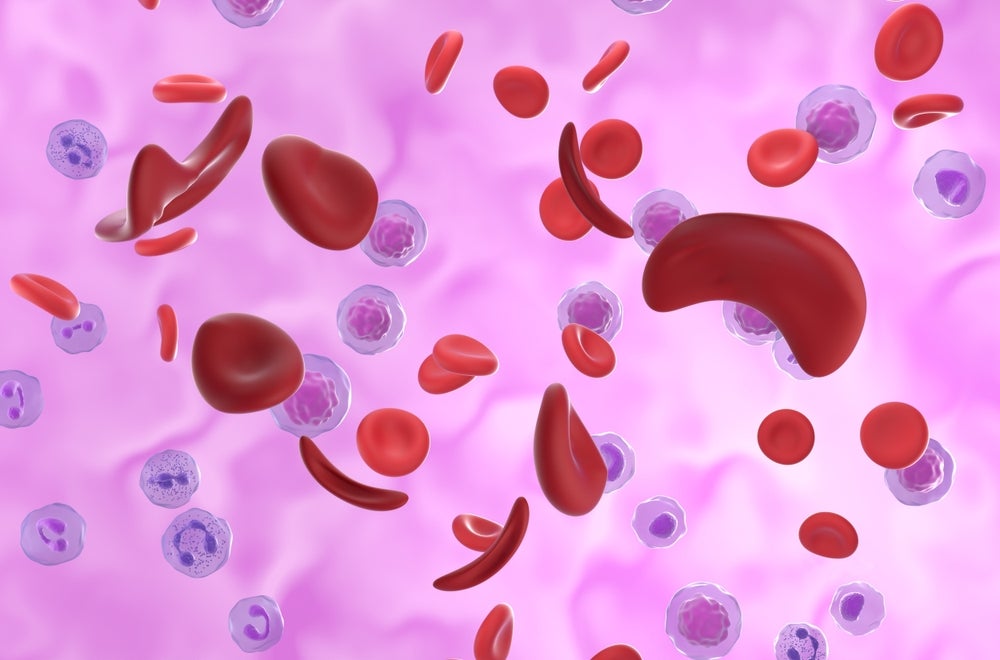

Vertex Pharmaceuticals has gained a positive opinion from the EMA’s CHMP for Casgevy (exa-cel), paving the way for European approval of the sickle cell gene therapy early next year.
The CHMP will now send their recommendation of conditional marketing authorisation – for the treatment of sickle cell disease and transfusion-dependent beta thalassemia (TDT) in patients aged 12 years or older – to the European Commission, with a decision expected in Q1 2024, according to a 15 December press release.

Discover B2B Marketing That Performs
Combine business intelligence and editorial excellence to reach engaged professionals across 36 leading media platforms.
If approved, the EMA would follow suit of the US, where the CRISPR/Cas9 gene-edited therapy was approved by the US Food and Drug Administration (FDA) earlier this month alongside bluebird bio’s Lygenia (lovo-cel).
An EMA conditional marketing authorisation facilitates early access to a medicine that fulfils an unmet medical need. A recommendation for marketing authorisation requires less complete data than usual, though continuing safety and efficacy confirmation is still needed.
Developed in partnership with CRISPR Therapeutics, Casgevy could become the first gene therapy for patients in the European Union with severe sickle cell disease with recurrent vaso-occlusive crises (VOCs). It would also be the first gene therapy for TDT patients for whom a haematopoietic stem cell transplant is appropriate and a human leukocyte antigen-matched related donor is not available.
Casgevy is also approved in the UK for the same indications, after the UK Medicines and Healthcare Products Regulatory Agency (MHRA) granted conditional marketing authorisation in November 2023.

US Tariffs are shifting - will you react or anticipate?
Don’t let policy changes catch you off guard. Stay proactive with real-time data and expert analysis.
By GlobalDataThe recommendation was based on two ongoing clinical trials, according to an EMA alert. The Committee for Advanced Therapies (CAT) found that the Phase I/II CLIMB-111 (NCT03655678) and Phase II/III CLIMB-121 (NCT03745287) trials demonstrate the benefits of Casgevy outweighed the possible risks in patients with TDT and sickle cell disease respectively. The CHMP concurred and approval of the medicine was recommended.
As part of efficacy and safety confirmation for Casgevy, Vertex is required to submit the final results from the ongoing pivotal trials by August 2026, as well as further long-term follow-up data from a separate study called CLIMB-131.
Sickle cell disease and TDT are inherited rare blood disorders caused by genetic mutations that affect the production or function of haemoglobin. Casgevy works as a one-off treatment that uses CRISPR as “molecular scissors” to modify haematopoietic stem cells from the patient so that more foetal haemoglobin (HbF) is produced, which enhances oxygen delivery. The edited cells are then engrafted into the patient’s bone marrow.
According to a sales forecast by GlobalData, Casgevy is estimated to see global sales of $704m by 2029.
GlobalData is the parent company of Pharmaceutical Technology.
Despite its potential clinical impact, questions over accessibility remain. Vertex and CRISPR have set a price of $2.2m for Casgevy in the US.
Cell & Gene Therapy coverage on Pharmaceutical Technology is supported by Cytiva.
Editorial content is independently produced and follows the highest standards of journalistic integrity. Topic sponsors are not involved in the creation of editorial content.




